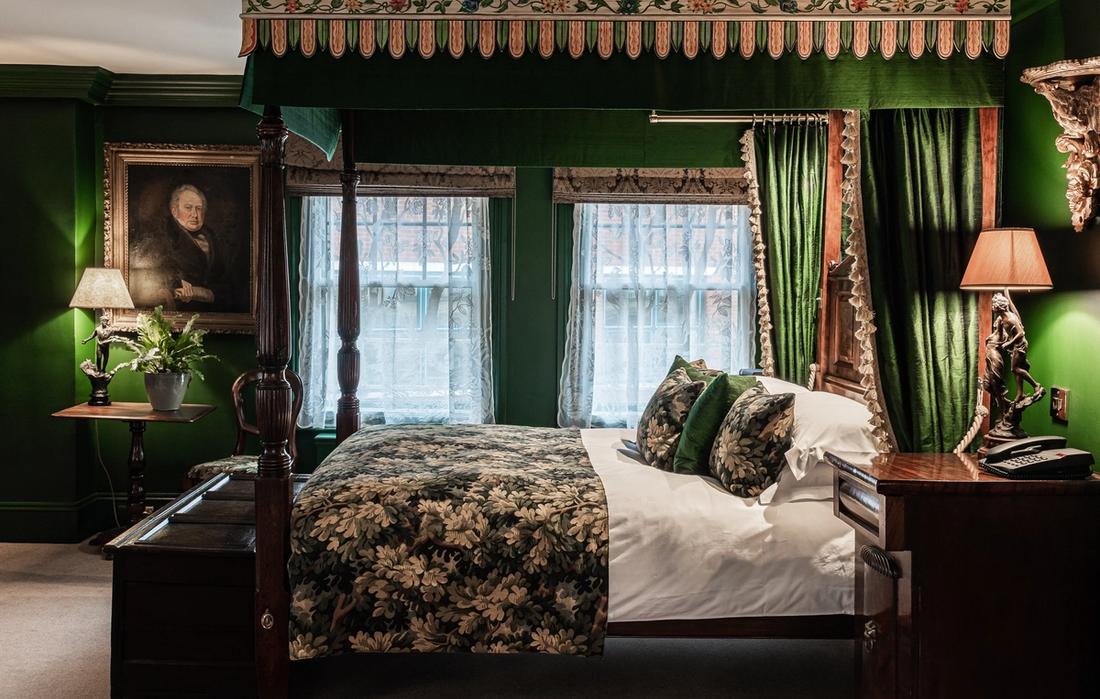The Good Hotel Guide is the leading independent guide to hotels in Great Britain & Ireland, and also covers parts of Continental Europe. The Guide was first published in 1978. It is written for the reader seeking impartial advice on finding a good place to stay. Hotels cannot buy their way into the Guide. The editors and inspectors do not accept free hospitality on their anonymous visits to hotels. All hotels in the Guide receive a free basic listing. A fee is charged for a full web entry.
The Good Hotel Guide
About Us
Independent
Recommended
Trusted
Independent
Recommended
Trusted

Cheating trips up TripAdvisor
All blog posts
4 minutes
6 Sep 2019
Cheating trips up TripAdvisor
All blog posts
4 minutes
6 Sep 2019
‘Just how ubiquitous is cheating on TripAdvisor?’ This question was asked last week by the consumer body Which? Unfortunately, there is no answer to how many of the hotel reviews appearing on TA’s website are bogus. TripAdvisor doesn’t have a clue. It makes only cursory attempts to weed out the cheats and it discloses only minimal information about its fraud detection efforts. The only certainty is that collusion is on the increase.
The commercial importance of TA’s website, not least the fact that it is used by many millions of people all over the world, has led to the rise of reputation management companies which offer hotels for a fee to seed the travel web site with favourable reviews. These companies have learnt how to run rings around TA’s flawed algorithmic fraud detection systems. In fact, it is easy for even a rank amateur to post a bogus review on TA. Sadly, many of TA’s 500 million users are unaware of how frequently they are being conned. Though the extent is debatable—some estimates suggest that as many as a quarter of TA’s reviews are bogus–the fact that malpractice is rife is not.
An investigation by the UK’s Advertising Standards Authority led to TA being told that it must not ‘claim that all the reviews that appeared on the website were from real travellers or were honest, real or trusted.’ TA, as a result, was forced to ditch its motto ‘Reviews You Can Trust’. The travel website was also fined 500,000 Euros by Italy’s competition authority for publishing bogus reviews. The Italian regulator said that TA should stop claiming that reviews on its website were ‘authentic and genuine’. Central to its ruling was the regulator’s decision that TA had failed to prevent false reviews appearing on its website, and that it did not do enough to try to find out whether those who left negative reviews had even stayed at the hotels they were criticising. This decision was eventually over-ruled by an Italian court which ruled that ‘TripAdvisor never asserted that all the opinions on its website were real.’
Which? has been pursuing TripAdvisor for a long time. Four years ago, the consumer body posted a fake review from a bogus guest about a non-existing hotel which promptly went up on TA’s website. Which? then posed as the fake hotelier in order to complain about the ’unfair’ review. Neither the bogus listing nor the fake review was removed for weeks and then only after Which? had revealed all. It is not just collusive reviews that are a problem. Many hoteliers complain that they have been the victims of malicious reviews from fictitious guests who often turn out to be competitors. To test this, a fictional owner of a fictional B&B complained to TA about a fake reviewer’s criticism that he had to ‘make do with a wash from a kettle’. TripAdvisor replied saying that as the review complied with its guidelines, it would not be removed.
Does any of this matter? It does to the thousands of hospitality businesses which have suffered malicious reviews which Tripadvisor refuses to remove despite their producing evidence that they are fraudulent. TripAdvisor refuses to disclose the identities of its reviewers, claiming that it has no obligation to do so. And, yes, it matters to the millions of travellers looking to find reliable information about hotels. TA is a valuable source of information, one that is used monthly by nearly 500 million people. But it could be doing a much better job. Some of its lapses are ridiculous. Last year, a writer for Vice magazine managed to get his shed listed as the #1 restaurant in London by soliciting fake reviews from family and friends and posting images of gourmet-looking dishes made from shaving cream and bleach.
TA won’t reveal how many people it employs in detecting fraud, but it is only a few hundred. For a £7 billion company which is relied on for accurate information, this is totally inadequate. It should require all its reviewers to have a valid, checkable email address. Why should anyone be able to post contributions whether genuine, collusive or defamatory without any check whether they are from real people and whether they have actually stayed at the hotel they reviewing?


